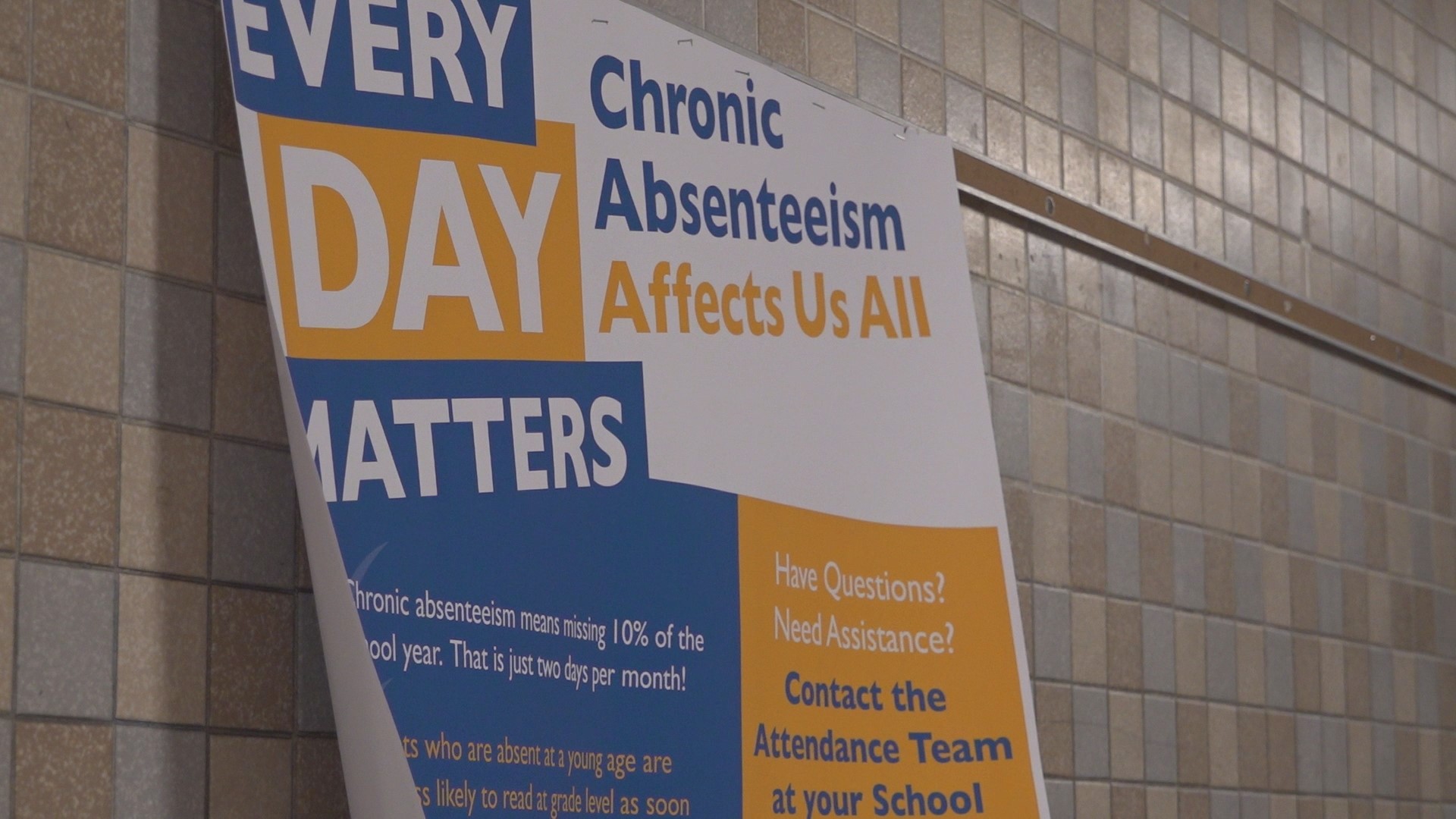DES MOINES, Iowa — Des Moines Public Schools has 60 schools under its purview, and even though district officials say chronic absenteeism has decreased the past two academic years, absenteeism numbers still hover around 40% of its student body.
Students are classified as chronically absent when they miss at least 10% of the school year, accounting for both excused and unexcused absences.
Since the COVID-19 pandemic began, chronic absenteeism across the country has nearly doubled from more than 8 million students to 14.7 million, according to federal data.
New DMPS superintendent Dr. Ian Roberts made it one of his priorities to address the issue when he took over leading the district, and leads its new "Every Day Matters" campaign — which works to raise awareness of chronic absenteeism among families.
"Failure is not an option with our Every Day Matters campaign," Roberts told Local 5 News. "We want to keep our finger on the pulse of this issue so we can really support our students, support their families to get students in our classrooms."
For the 2022-23 school year, DMPS officials say elementary school absenteeism rates ranged from as low as 13% to as high as 42%. Among secondary schools, the range was from 20% to as much as 73%. Chronic absenteeism includes students who missed as little as two days per month.
Rates from the past few years have decreased at 44 of the district's schools between, with drops in absenteeism rates noted in both the '21-'22 and '22-'23 school years — some by more than 10%.
But school officials say the numbers are still far too high for comfort, and that's why they want to continue to get kids in class to help them avoid falling behind their peers.
"They're missing out on their education, they're missing out on interacting with other kids and adults, and learning those skills," said SUCCESS case manager Jennifer Murphy. "They're missing out on graduating possibly in the future."
Murphy's among one of the 44 full-time SUCCESS case managers employed by Des Moines Public School who work to understand why a student misses school and supports them to get them back in the classroom.
"SUCCESS case managers are people who are truly superheroes," Dr. Roberts said.
Serving Meredith Middle School in the Beaverdale neighborhood, Murphy starts her day getting to school and checking to see which students from the 20-ish families she serves are present. For the ones who are absent, she calls their parents to see how she can provide support.
"If these kids aren't in the seats, they aren't going to get an education," Murphy explained.
The reason why a student misses school fluctuates depending on the family situation, but it's the SUCCESS case manager and Roberts' job to provide whatever it is that student needs to get to school.
Murphy said students' chronic absenteeism can be attributed to mental health issues, homelessness, no access to transportation or food insecurity.
Roberts added that, the older the student, the more independent they tend to be, and thus, the more a SUCCESS case manager works with the student instead of directly with the parent, which is the case for Pre-K through fifth graders.
Roberts told Local 5 that, if they are in a place as the district continues to review its progress at a "30, 60 or 90-day mark, where we aren't getting the kind of traction or return of investment that we anticipate," DMPS will revise their strategy for addressing chronic absenteeism.

